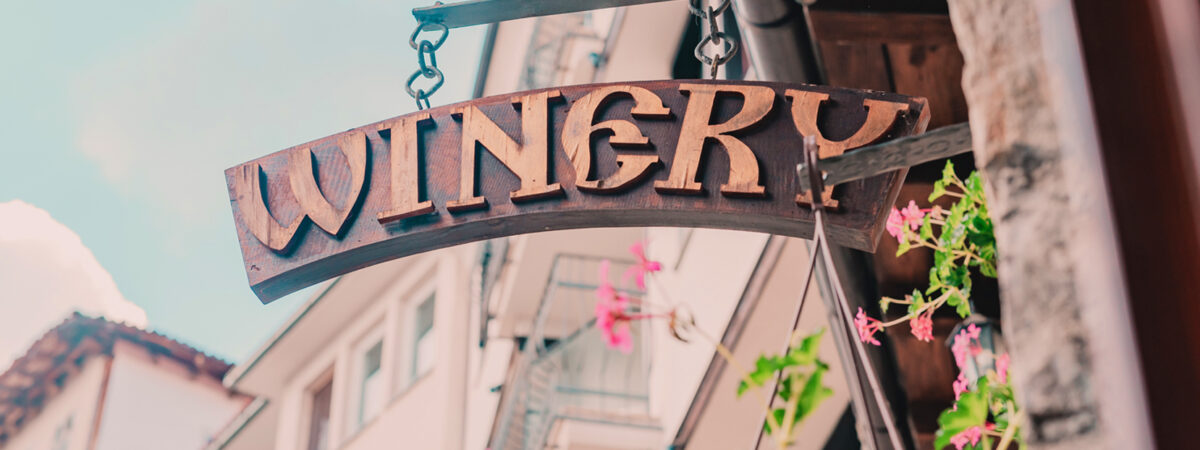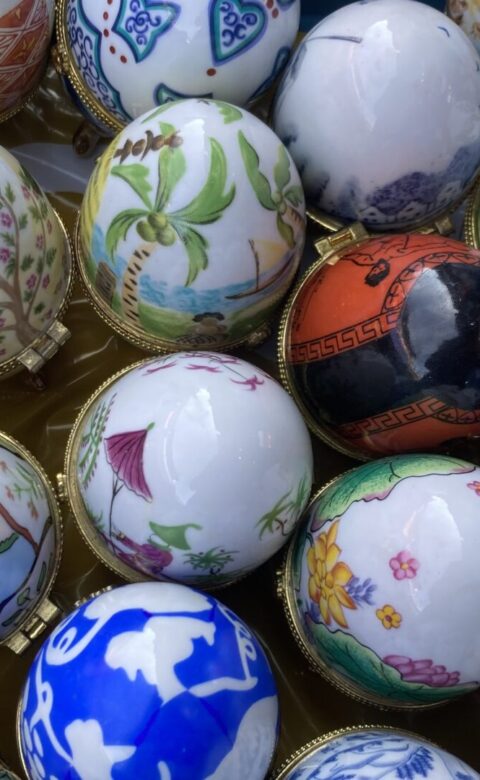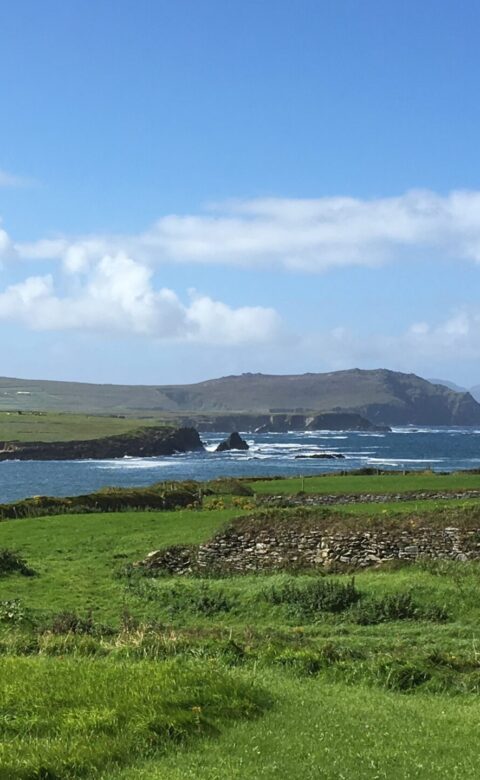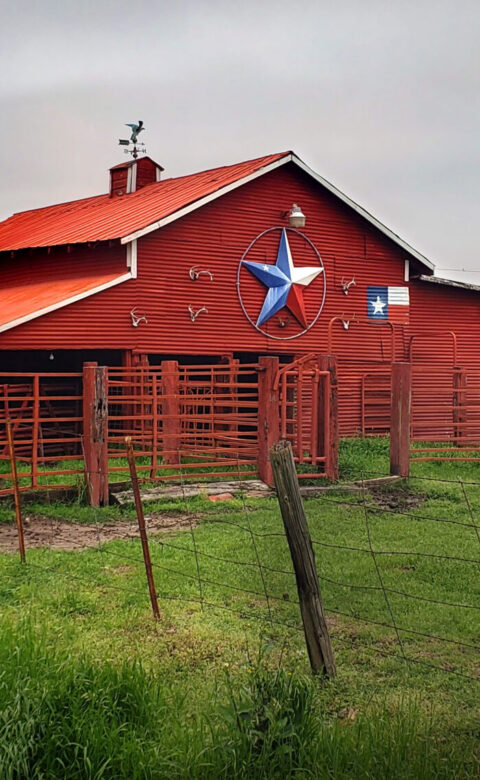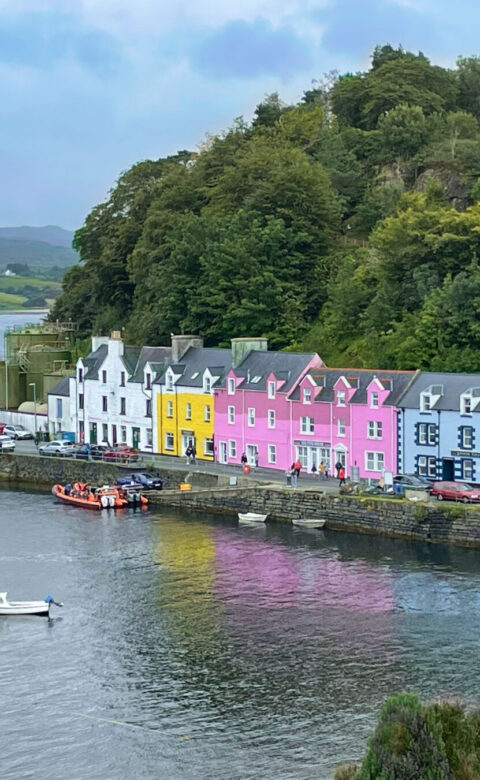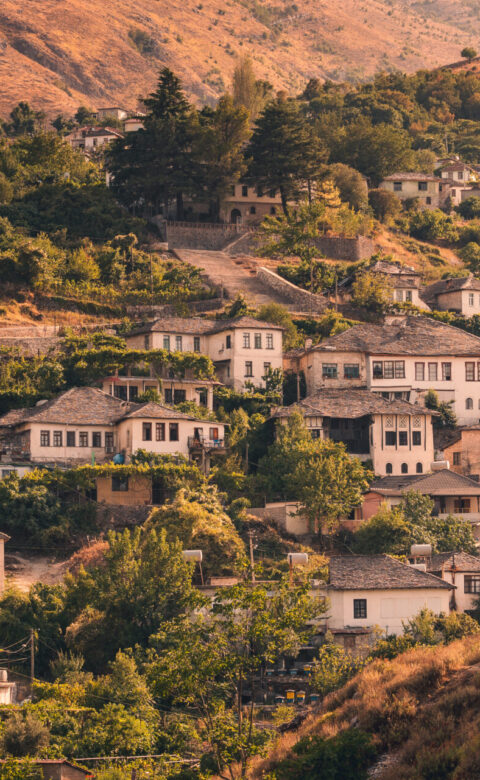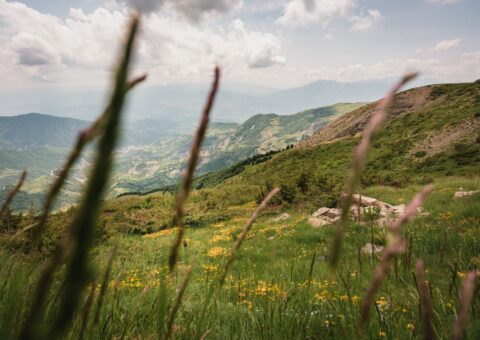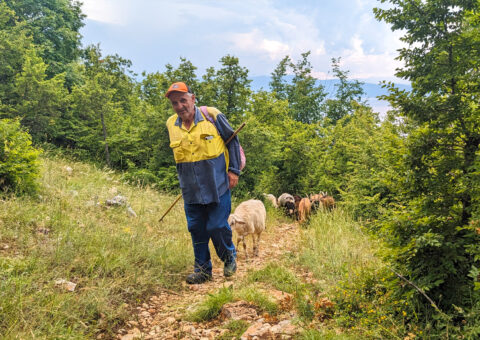I don’t like sommeliers. They tend to be too pretentious and snobby for my taste. I want to learn about wine without feeling like a lesser being, and I had the pleasure of doing just that with an entrepreneur and “wine ambassador” in the lake town of Ohrid, North Macedonia after finishing an outing on the High Scardus Trail.
While sitting in a natural limestone cavern that houses the wine bar that she opened and co-owns, Elena treated me to a tasting of some of the favourite wines they carry and shared with me the ins and outs of the wine business in Macedonia.
“Macedonian people, they didn’t have a real wine culture, because people usually focus on quantity over quality,” she admits with a laugh. This proved to be one of many challenges in opening a wine bar in a significant tourist destination such as Ohrid. With a short season, for most of the year she depends on locals for business, many of whom drink the wine or brandy they’ve made at home.
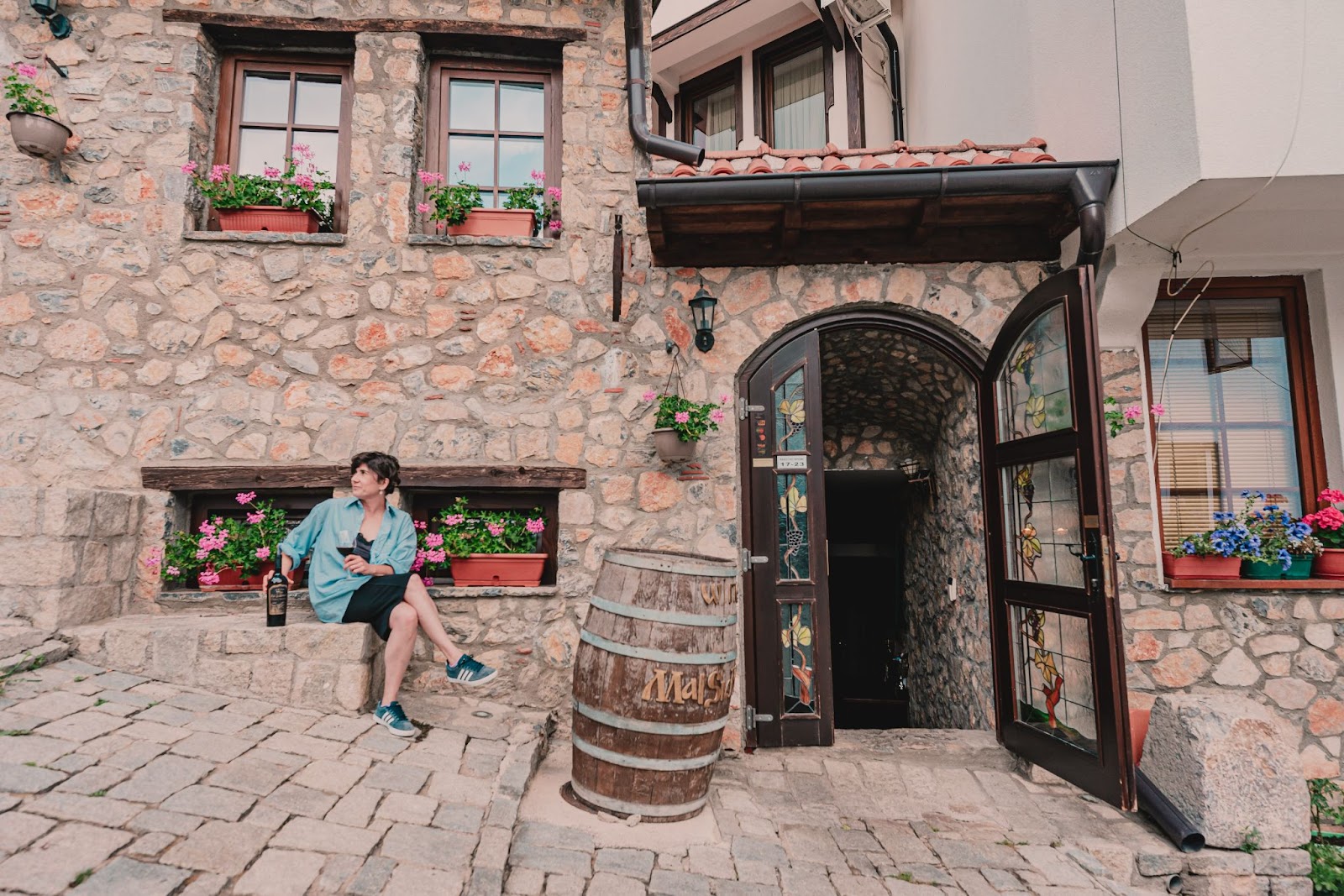
“Our goal here was to educate the people that there is more to just drinking the wine, to create an experience.” And I get to watch Elena do just that, as she moves from table to table to talk about the wines and impart her knowledge of vintages and altitudes to guests attending customised food and wine pairings. Her passion for wine began when some friends had returned from internships in France, and brought select bottles back with them. “And then we started to plan entire evenings around sharing wine and cooking.”
Elena studied graphic design, which she has been able to leverage in the wine business, having designed some bottle labels herself, and more recently designing her own bar’s tasting menus. She also spent a year working in the Netherlands as an au pair before returning to Ohrid. To my question about why she opened her business here, she replied, “I came back because I wanted to change things here. But I must admit I couldn’t stand the lifestyle there, how they were living for me, it was a clash of cultures.”
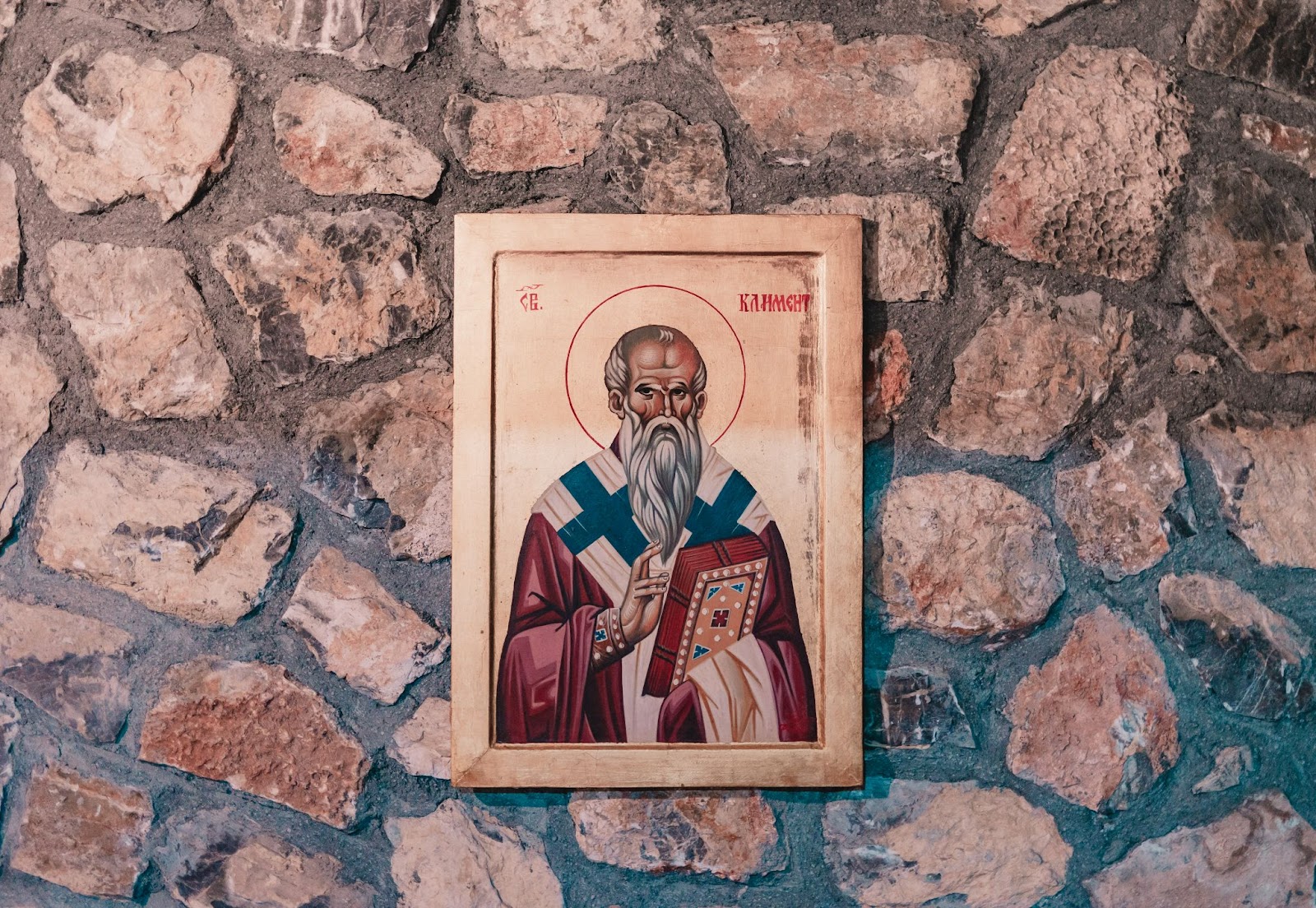
I asked her what it was like to be the owner of a wine bar in a region where men traditionally dominate the hospitality industry. “In Ohrid,” she says, “I’m not sure if there was [ever] a woman owning a bar. No, they’re just men and that’s why we had the opportunity for financial support because they [the government] like to support woman business owners.”
We eventually spoke about her training and studies of wine tasting and theory. I asked her about the loaded word, “sommelier,” to which she explained, “I prefer ‘wine enthusiast, ambassador.’ When people ask about wine, I don’t like to recite what’s written on the label or tell them what they’re tasting. Because it’s more personal than that, right? There should be no right or wrong answer.”
I’m floored by her passion and knowledge. She knows the history, the process, and all of the local winemakers and their stories. But what makes her so successful is not only her combination of knowledge with passion, but also the patience to work with uninitiated wine drinkers like me. Guests begin to filter in as she tells me about the producer of the Tamjanika from the Tikves region that we’re tasting, and how it won a gold medal in a wine competition in Germany. “It’s quite acidic, but for me, it has a quite noticeable hint of basil.” I’m hoping to purchase a bottle, but as she is now (unsurprisingly) becoming overwhelmed with working with her incoming guests, I tell her I’ll return when she’s less busy.
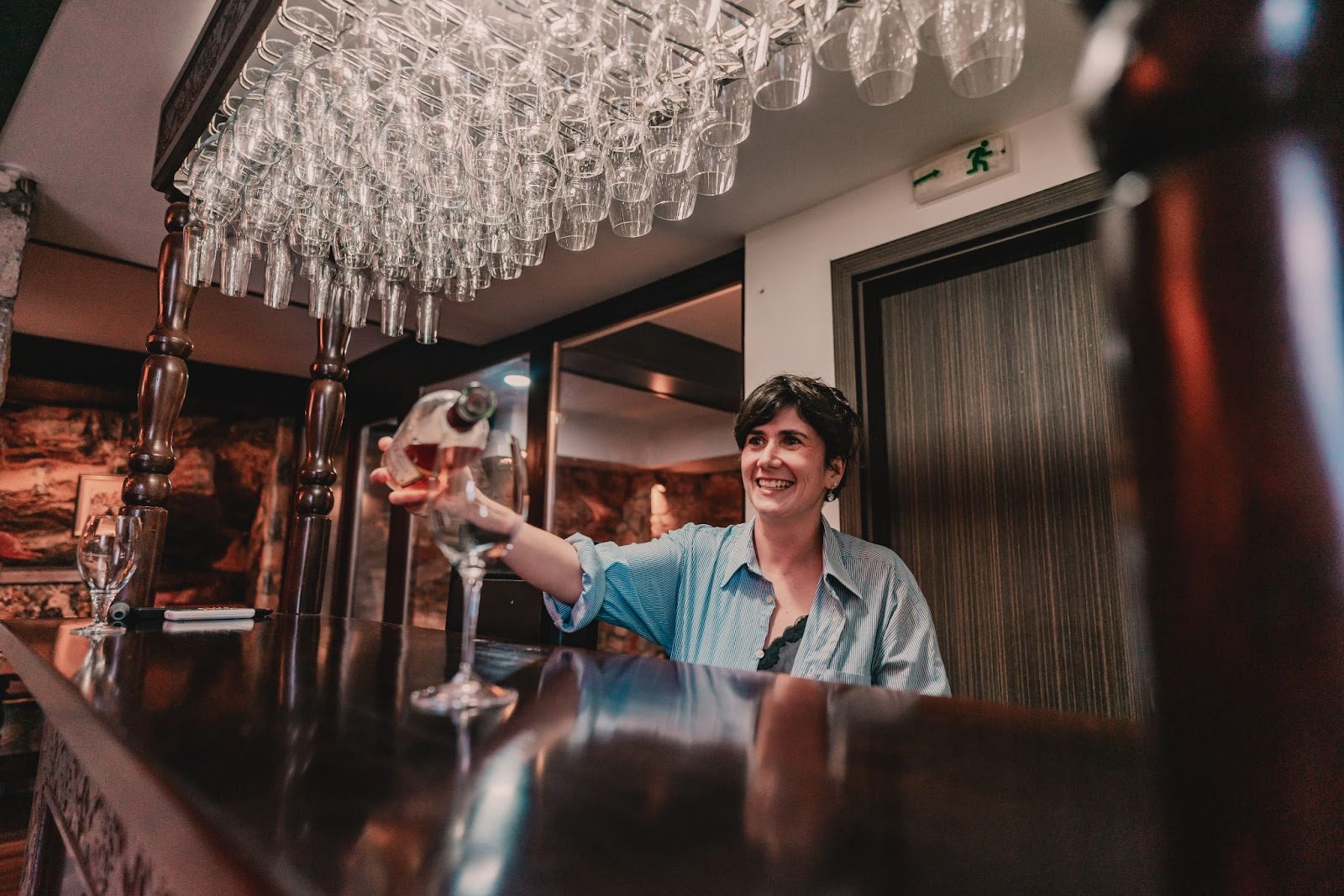
Upon my return later that evening, I met Elena’s business partner, Almir. The guests had left for the night, but the bar was still open, as it had become a hangout spot for Almir and Elena’s friends. “We close up at 11, but sometimes we end up cleaning and locking up after 3,” he says, as I help him polish some of the wine glasses, an element of the service industry that I had grown fond of in my own days as a bartender. “I find it similar to meditation,” Almir told me, to which I agreed.
While drying and buffing out streaks in the glasses, I asked about the flight of youth to Europe, and he dismissed their aims as short-sighted, that they’re just searching for ways to earn “quick money.” Elena spoke of her own decision to return, saying, “Sometimes I’m joking, like ‘why am I here?’ Nothing has changed. I’m still not optimistic, things are more or less the same, maybe worse, I don’t know.”
I ask Elena what her hopes are, or what she is most excited about for the future. And she smiles and says, “Well, Almir has been joking that after a couple of years, this will be like a Michelin Star restaurant.” We laugh and make one last toast before closing down the bar for the night.
The writer joined Ethical Travel Portal and Trail Angels on a media-funded trek along the High Scardus Trail through this strongly intertwined region. In visiting Albania, Northern Macedonia and Kosovo, we explored this new and fascinating long-distance hiking route, gaining a greater appreciation for the diverse cultures and natural beauty that it journeys through. The words in the article are Matt’s own, and he has pitched the story according to the same principles as other writers.

